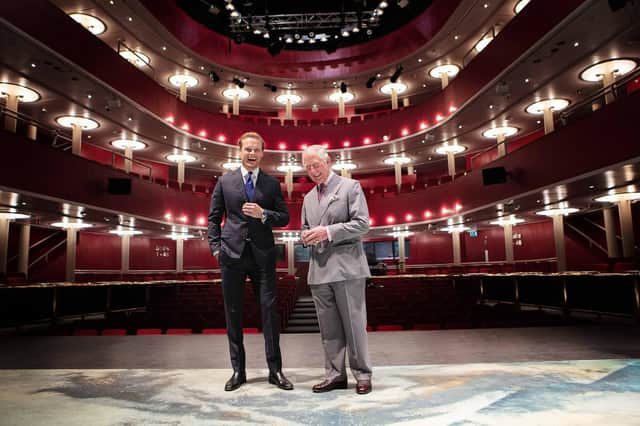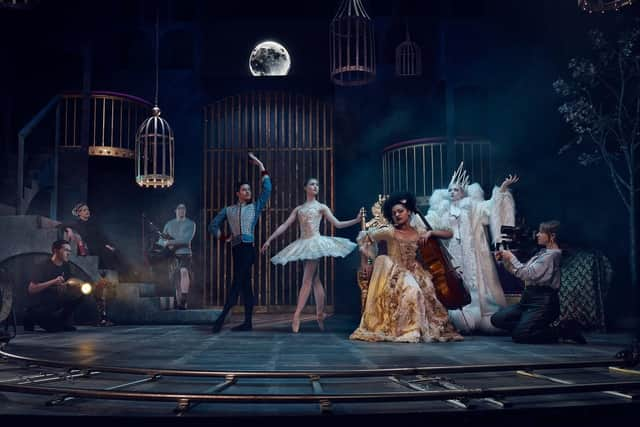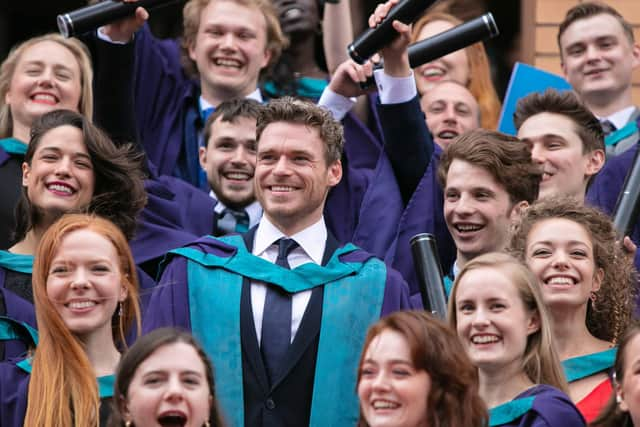Glasgow’s historic music and drama school named in global top five


The Royal Conservatoire of Scotland, where some of the country’s biggest stage and screen stars learned their craft, has been named in a global top 10 for the sixth time since the QS World University Rankings were instigated in 2016.
The Glasgow institution was rated in fifth place, behind the Royal College of Music in London, the University of Music and Performing Arts in Vienna, the Juilliard School in New York and the Conservatoire de Paris.
Advertisement
Hide AdAdvertisement
Hide AdMore than 3000 students from 60 countries are now taught music, drama, dance, production and film at the RCS every year, with its usual programme of more than 500 public performances attracting upwards of 40,000 members of the public before the pandemic.


It can count Hollywood and Broadway star Alan Cumming, Outlander favourite Sam Heughan, Doctor Who star David Tennant, screenwriter Krysty Wilson-Cairns, mezzo-soprano Catriona Morison and former Scots Makar Jackie Kay among its alumni.
Recent graduates include actor Lorn Macdonald, actress Anna Russell-Martin, Sex Education star Ncuti Gatwa, Scots singer Iona Fyfe and jazz musician Fergus McCreadie.
Professor Jeffrey Sharkey, principal of the Royal Conservatoire, said: “We know the convening power of the arts, their ability to share our stories and comment on the best and worst of the human condition. We’ve campaigned continuously to keep our arts alive throughout the pandemic for our conservatoire and for the whole of our nation.
“This recognition is a wonderful testament to the reliance, perseverance, and creative expression of our students, staff and wider community of supporters and I thank them all for their amazing efforts.”


Nick Kuenssberg, chair of the RCS board, said: “Congratulations to the entire conservatoire community for this wonderful accolade.
“Scotland’s national conservatoire has delivered excellence in teaching for over 175 years and this latest recognition reinforces its reputation as a global leader in performing arts education and research.
Advertisement
Hide AdAdvertisement
Hide Ad“Despite the pandemic, yet again the conservatoire has been able to maintain its value set and continues to develop its pedagogy and unique combination of disciplines at the highest level.”
The RCS can trace its roots back to 1847 when the Glasgow Athenaeum was established in the city to "provide a source of mental cultivation, moral improvement and delightful recreation to all classes.” Officially opened by Charles Dickens, it initially offered music classes, however its curriculum was expanded to embrace drama tuition in 1886.
The institution would go on to become the Scottish National Academy of Music in 1929, securing royal status from King George VI in 1944. The Glasgow College of Dramatic Art was formed in 1950 and became the first drama school to run its own TV studio in 1962.
The new identity of the Royal Scottish Academy of Music and Drama was forged in 1968 and remained intact until a change of name to the Royal Conservatoire of Scotland in 2011 to better reflect the range of courses on offer.
Comments
Want to join the conversation? Please or to comment on this article.
